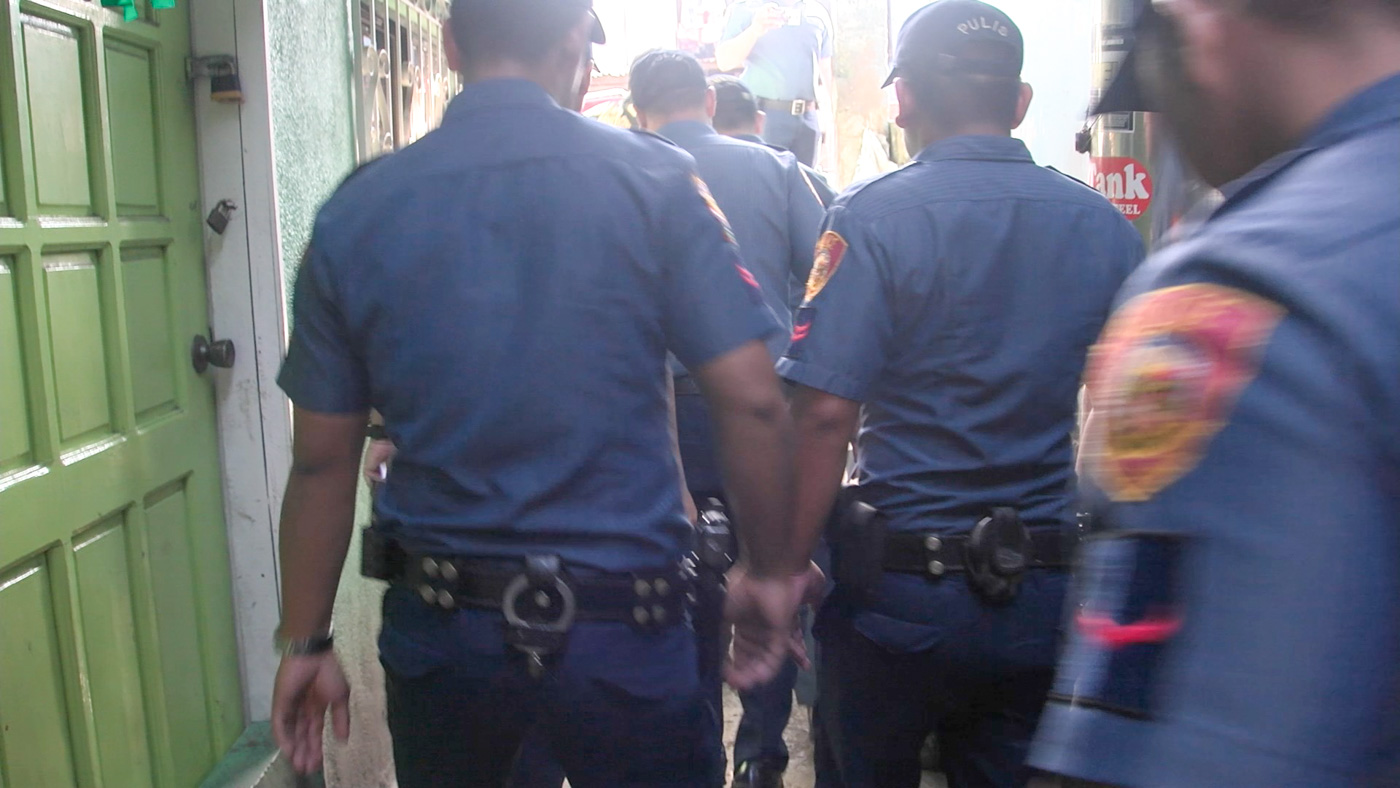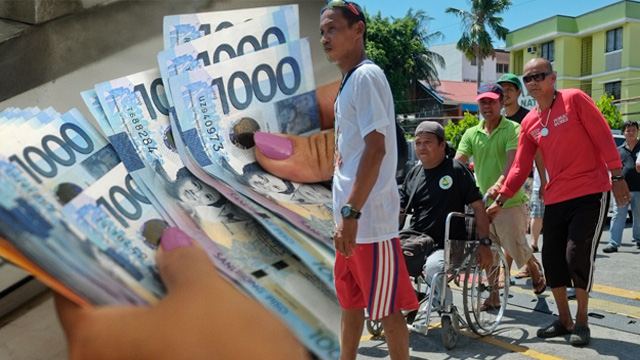![HISTORIC. This combination of file pictures created on May 10, 2018 shows US President Donald Trump during a rally in Washington, Michigan on April 28, 2018, and a photo released from North Korea's official Korean Central News Agency (KCNA) on April 21, 2018 of North Korean leader Kim Jong-Un delivering a speech in Pyongyang.]()
WASHINGTON DC, USA (UPDATED) – Donald Trump on Thursday, May 10 revealed his historic summit with Kim Jong-Un– the first-ever between a sitting US president and a North Korean leader – will take place in Singapore on June 12.
The location and date of the landmark meeting were announced in a presidential tweet just hours after Trump welcomed to the United States 3 American prisoners released by Pyongyang.
"We will both try to make it a very special moment for World Peace!" Trump wrote.
{source}<center>
<blockquote class="twitter-tweet" data-lang="en"><p lang="en" dir="ltr">The highly anticipated meeting between Kim Jong Un and myself will take place in Singapore on June 12th. We will both try to make it a very special moment for World Peace!</p>— Donald J. Trump (@realDonaldTrump) <a href="https://twitter.com/realDonaldTrump/status/994587349718847489?ref_src=twsrc%5Etfw">May 10, 2018</a></blockquote>
<script async src="https://platform.twitter.com/widgets.js" charset="utf-8"></script>
</center>{/source}
The talks, which are expected to last one day, are set to focus on North Korea's rapidly advancing nuclear and ballistic weapons programs.
"I think it will be a big success," Trump said as he boarded Air Force One, on his way to a political rally in Indiana.
US officials said the release of Americans Kim Hak-song, Tony Kim and Kim Dong-chul removed a major obstacle to the summit, providing Trump with some tangible evidence that his twin-track policy of engagement and "maximum pressure" was working.
"We're not under any illusions about who these people are. We know who we are dealing with here," said Victoria Coates, of the National Security Council.
"But we got, up front, our people home."
Neutral setting
The United States and North Korea are technically still at war – a stop-gap armistice ended the brutal 3-year Korean war in 1953 and around 30,000 American troops remain in neighboring South Korea, which the US supported in the conflict.
Singapore will provide a neutral backdrop for the summit, avoiding some of the security and political challenges associated with a meeting in the Demilitarized Zone that separates North and South Korea.
The Southeast Asia city state has long acted as a bridge between the United States and China, with successive prime ministers offering Oval Office occupants their cherished geopolitical counsel.
When Trump and Kim do sit down a month from now, the two relatively untested leaders will be presented with a puzzle that has stymied seasoned diplomats for decades.
A series of US administrations have sent envoys, both official and unofficial, to Pyongyang in the hope of stopping North Korea's provocative nuclear weapons program.
Former presidents Bill Clinton and Jimmy Carter visited after leaving office, multiple rounds of non-proliferation talks have taken place, and a deal was even signed in 1994.
But despite the optimism of that moment, all efforts to limit North Korea's nuclear program have, to date, failed. And more than two decades and multiple provocative weapons tests after the last accord, the threat from Pyongyang has only grown.
The country is now believed to be on the cusp of developing an intercontinental ballistic missile that could deliver a nuclear warhead to the US mainland.
Trump has vowed that he will not let that happen and has demanded that North Korea give up its nukes.
'Cautious optimism'
So far, the North Korean regime has made vague pledges to "denuclearize" but has not spelled out what that means, when it would happen or how it would be implemented.
In North Korea's bombastic rhetoric, "denuclearization" has, for years, been a byword for US troop withdrawals from South Korea and an excuse for stalling.
Hardliners in the North are believed to see possession of a nuclear weapon as the only guarantee against US-led efforts to topple Kim's regime.
Coates said there were no preconditions for the talks, which could yet include other regional leaders such as the South Korean president, but concrete steps would be welcome.
"The president's goal is very clear – the irreversible, verifiable removal of this nuclear weapons program. If he doesn't see material progress to that, there's not going to be a deal for a deal's sake," she said.
Coates said that North Korea handing over details about its existing program would "set us up with a greater chance of success, anything that they would like to do, but we haven't been signaling preconditions up until this point."
Trump's high-profile meeting offers a glimmer of hope of a breakthrough, according to Republican Senator Cory Gardner, who discussed preparations for the summit with Trump at the White House on Wednesday, May 9.
"This is a moment for cautious optimism," Gardner told Agence France-Presse. "The president understands that there is a historic opportunity to achieve what the world has been unable to achieve for decades."
At the same time, Gardner said, Trump's eyes were wide open about the risks of failure and the need to be clear that denuclearization means abandoning nuclear weapons.
"As of last night, there was no nuance in terms of denuclearization," he said.
But before any technical talk about reprocessed fuel rods, separated plutonium or spent fuel removal, Trump will want to answer one basic question – whether North Korea wants to change.
"This is the key test," said Gardner. "I think that if Kim Jong-Un wants to find relief from 'maximum pressure' and be welcomed back to the table of recognized global leadership, it's the only path he has."
Since the foundation of North Korea in 1948, the country has endured war and struggled to balance rival Soviet and Chinese spheres of influence.
Decades of financial stagnation, international sanctions, mass starvation and industrial scale human rights abuses followed.
"The road we have been down is well traveled and it's never ended well. So I hope this time is different," said Gardner. – Rappler.com
![]()






 MANILA, Philippines – The Environmental Management Bureau (EMB) of the Department of Environment and Natiural Resources (DENR) deployed teams to assess the extent of fish kills in Obando, Bulacan, and in Pontevedra, Negros Occidental.
MANILA, Philippines – The Environmental Management Bureau (EMB) of the Department of Environment and Natiural Resources (DENR) deployed teams to assess the extent of fish kills in Obando, Bulacan, and in Pontevedra, Negros Occidental.













